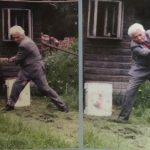Emmanuel Levinas, 1906-1995
NEWS Emmanuel Levinas, 1906-1995 mmanuel Levinas, who died in Paris on 25 December 1995, was born on 12 January 1906 in Kovno (Kaunas) in Lithuania. His parents were practising Jews and part of an important Jewish community. Most members of his family were killed by the Nazis. Levinas grew up reading the Bible in Hebrew, […]







